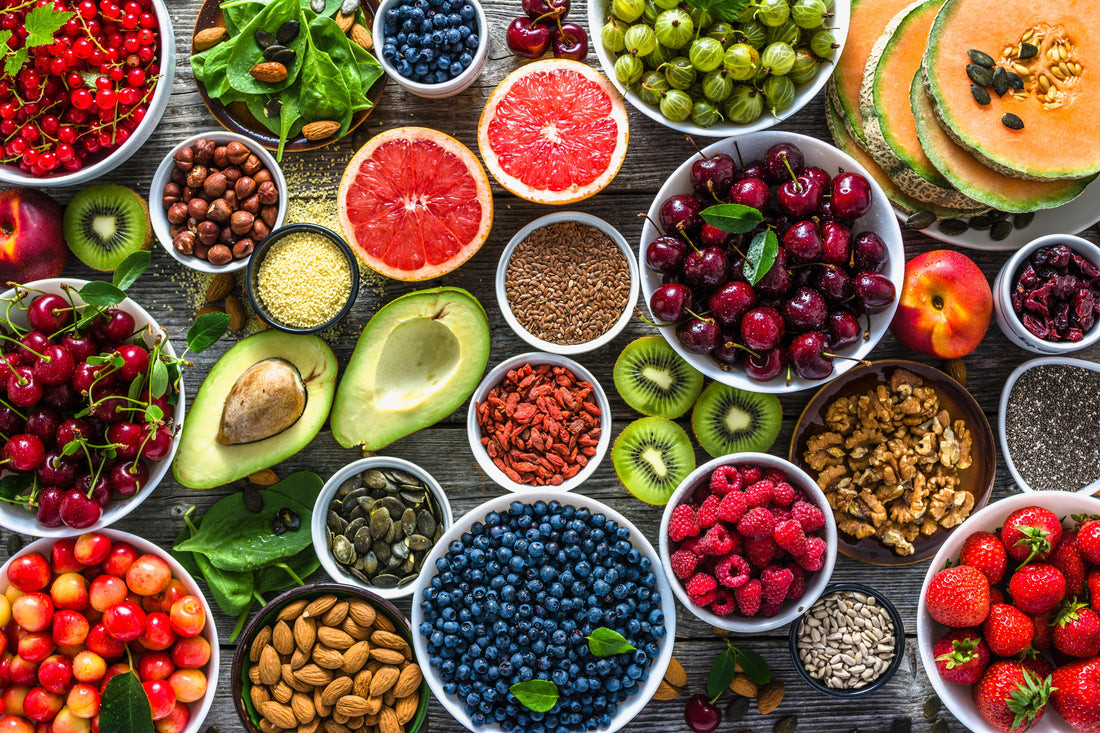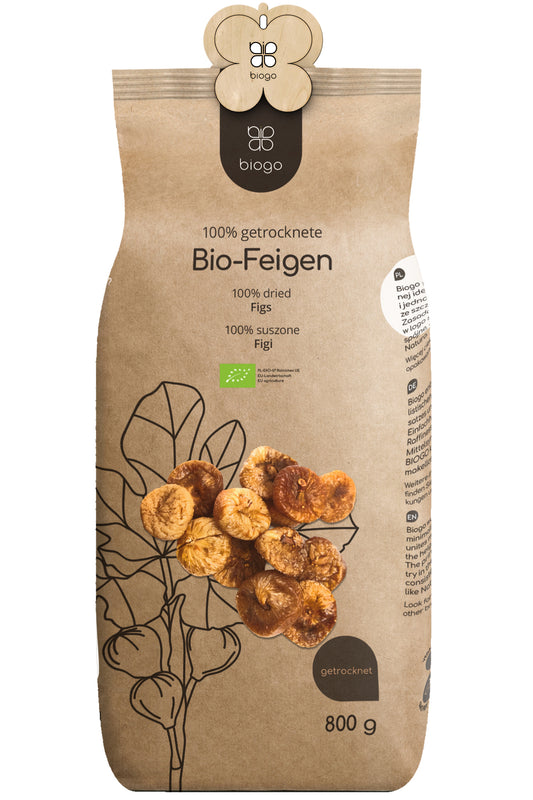Contents:
- Vegan diet – what is it?
- What types of vegan diets are there?
- Which vegan products are suitable for this diet?
- Learn more about the advantages and disadvantages of a vegan diet
- Is a vegan diet suitable for children and pregnant women?
In recent years, the vegan diet has gained popularity. People choose this diet for a variety of reasons. Some are motivated by ethical considerations, others are concerned about the environmental impact, and still others choose veganism for health reasons. However, giving up meat and animal products is only the beginning—giving up these ingredients alone is not enough to make a diet nutritious.
Vegetarianism requires caution, as a lack of animal protein, vitamins, and minerals can lead to serious deficiencies. To stay healthy, careful planning and knowledge of suitable substitutes are essential. We'll show you how to properly create your plant-based diet so it's both tasty and nutrient-dense.
Vegan diet – what is it?
The core of a vegan diet is the complete avoidance of animal products. Vegan products are meals based exclusively on plant-based ingredients such as vegetables, fruits, grains, legumes, nuts, and seeds. This is a more restrictive form of vegetarianism that avoids not only meat but also dairy products, eggs, and honey.
Veganism has both supporters and detractors. Many people choose this diet for ethical, environmental, or health reasons. While a plant-based diet can be beneficial, if not followed properly, there is a risk of nutrient deficiencies. For this reason, a balanced diet is important, and supplements are often necessary. Science confirms that veganism is safe when planned consciously.
What types of vegan diets are there?
A vegan diet can take many different forms, depending on your individual goals. Here are some popular types of vegan diets:
• Vegan diet for weight loss – Although a vegan diet isn't designed for weight loss, appropriate calorie intake can contribute to weight loss. People who follow a vegan diet often lose weight unconsciously by avoiding high-calorie foods. However, you should be careful about consuming too many processed plant-based foods, as these can lead to weight gain.
• Ketogenic diet – combines the principles of a vegan diet with a low carbohydrate, high fat diet. It may be helpful for those with insulin resistance or obesity, but carries the risk of nutrient deficiencies and requires consultation with a nutritionist.
• Vegan gluten-free diet – aimed at people with gluten intolerance or celiac disease. Wheat, rye, and gluten-containing groats are excluded. Instead, vegan products such as gluten-free grains such as rice, buckwheat, quinoa, and amaranth are introduced.
• Vegan diets for athletes – While a vegan diet is possible for athletes, it carries the risk of protein and energy deficiencies. It's important to plan your meals to ensure they contain adequate protein, iron, and calories. Protein supplements are often recommended, and restricting carbohydrates can negatively impact athletic performance.
• High-calorie and low-calorie vegan diets – the calorie content of the diet depends on the individual's goals and needs. For example, the diet can be 1,400 kcal, 2,000 kcal, or 2,500 kcal, depending on physical activity, gender, or goal (weight loss or mass gain).
Which vegan products are suitable for this diet?
A vegan diet is based exclusively on plant-based foods. Vegetarians can eat:
• vegetables and fruit,
• Grain,
• plant-based drinks – including vegan milk ,
• pods,
• Nuts, kernels and seeds,
• vegetable fats – e.g. vegan lard , vegan margarine ,
• vegan cold cuts or vegan pies .
Vegan alternatives such as pea cakes, coconut yogurts and plant-based drinks (oat, almond, rice) are also available in stores, providing variety in the diet.
If you follow a vegan diet, you should avoid the following foods:
• Meat and meat products,
• Fish and seafood,
• eggs,
• Milk and dairy products,
• Honey.
Learn more about the advantages and disadvantages of a vegan diet
A vegan diet has many benefits. Because it's plant-based, it reduces the risk of heart disease and other conditions. It contains plenty of fiber, which supports gut health. Limiting animal products reduces the intake of saturated fat, which can lead to dyslipidemia and arteriosclerosis.
On the other hand, a vegan diet carries the risk of nutrient deficiencies. Iron deficiency can lead to anemia, and vitamin B12 deficiency damages the nervous system. Furthermore, vegans may have difficulty consuming enough protein and maintaining muscle mass. Therefore, it's important to plan your diet carefully to minimize these risks.
Is a vegan diet suitable for children and pregnant women?
According to the American Dietetic Association, a well-planned vegan diet is suitable for people of all ages, including pregnant women, children, and adolescents. It's important to ensure balanced meals and regular monitoring of health status for deficiencies. Dietary supplements, especially vitamin B12, should be taken as recommended by your doctor. A vegan diet for pregnant women and children includes adequate protein and iron intake, which are necessary for healthy development.
THE PUBLISHER'S CHOICE
Dried dates 1 kg BIOGO
- €4,21
€4,95- €4,21
- Unit price
- / per
Almonds 1 kg BIOGO
- €11,69
€13,75- €11,69
- Unit price
- / per
Peeled sunflower seeds 1 kg BIOGO
- €3,04
€3,57- €3,04
- Unit price
- / per
Dried organic mango 400 g BIOGO
- €10,99
- €10,99
- Unit price
- / per
Dried White Mulberries 500 g ORGANIC
- €5,84
€6,87- €5,84
- Unit price
- / per
Popcorn (corn kernels) organic 1 kg BIOGO
- €5,84
- €5,84
- Unit price
- / per
Organic Ground Turmeric 500 g BIOGO
- €5,92
- €5,92
- Unit price
- / per
Milk thistle seeds 1 kg BIOGO
- €3,99
- €3,99
- Unit price
- / per
Dried organic figs 800 g BIOGO
- €30,12
- €30,12
- Unit price
- / per
Bag #changezbiogo Cotton v.2
- €3,27
- €3,27
- Unit price
- / per






































































































































